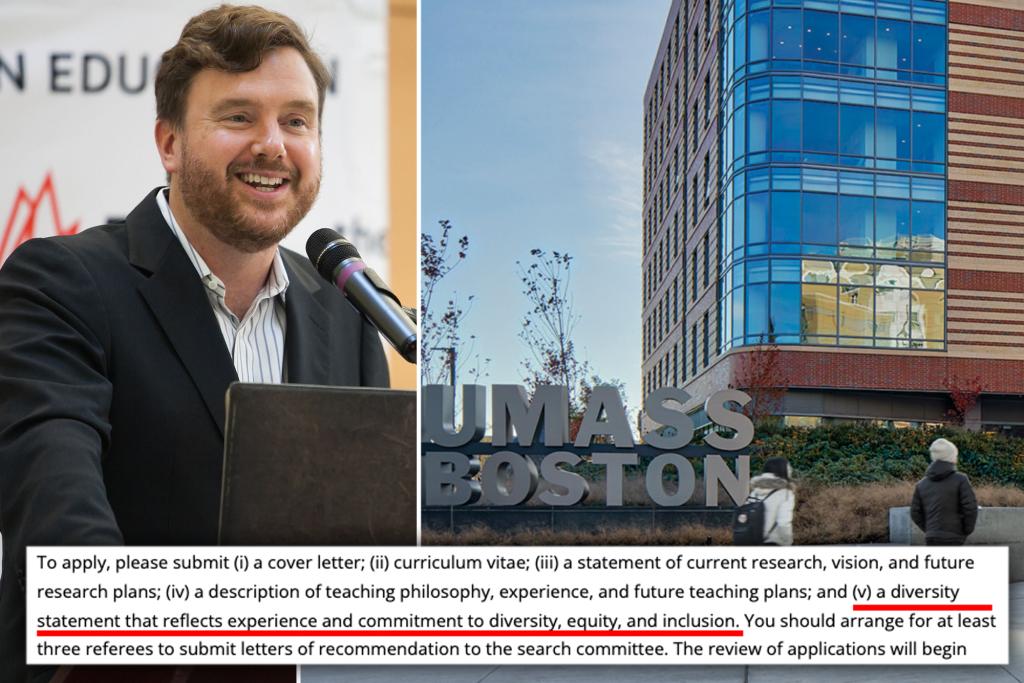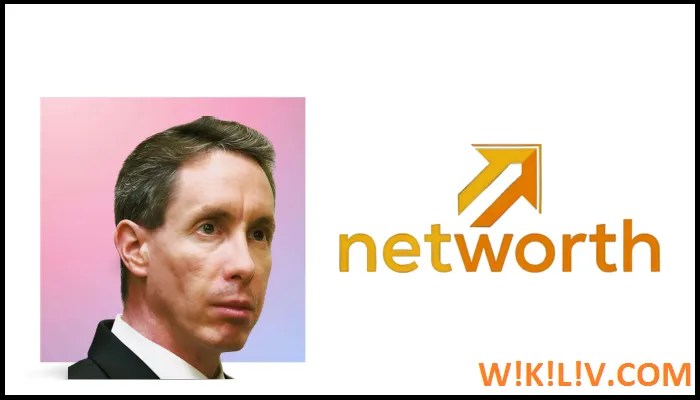Want a job at the University of Massachusetts Boston? Well, until recently, you had to pledge your commitment to Diversity, Equity and Inclusion first.
The troubling requirement is evident in the job ad, which requires prospective assistant professors in computer science to write a “diversity statement that reflects [their] commitment to equality and diversity inclusion” as part of their job application.
And applicants for lecturer positions in the health sciences department are required to demonstrate a commitment “to support[ing] our goal is to ensure an inclusive, equitable and diverse workplace and educational environment.”
That’s a political litmus test if ever I saw one.
Thankfully, the school has quietly dropped the requirement, after being called out by the First Amendment watchdog group the Foundation for Individual Rights and Expression (FIRE).
The required DEI statement, according to FIRE, “invades the faculty’s First Amendment right not to adopt a prescribed viewpoint.”
“Their subjective criteria can easily also be misused to penalize applicants with minority views, disagreements, or even simply different nuances on DEI-related issues that may not align with the university’s goals,” FIRE program officer Haley Gluhanich wrote in a letter to the university. .
The Foundation for Individual Rights and Expression calls out UMass Boston for possible viewpoint discrimination. Shutterstock FIRE
FIRE is right. Requiring professors to profess allegiance to vague and highly politicized concepts of “equity” and “inclusion” is a violation of their academic freedom.
Also, what exactly does DEI have to do with computer science?
In my book “The Canceling of the American Mind,” my co-author Greg Lukianoff and I argue that it is time for all colleges to drop the required DEI statement.
“To any sane person, a statement requiring you to explain your commitment to diversity, equity and inclusion is a political litmus test,” Lukianoff, who serves as FIRE’s president and CEO, told The Post. “There is no way that is not misused as a way to judge someone’s politics.”
While promoting “diversity” seems like a laudable goal at face value, the DEI bureaucracy taking over college campuses and corporations is divisive.
Controversial diversity training given to Coca Cola workers urges workers to be “less white.”
Champions of DEI can be very alienating, like “White Fragility” author Robin DiAngelo who advises people of color to “stay away from white people” and the diversity consultant who instructs Coca Cola employees on how to “be less white.”
I have seen this firsthand. When I was 14, my classmates and I were divided into “affinity groups” based on race and segregated into separate buildings to discuss our experiences — all in the name of “equity.”
Even as a teenager, I already felt alienated from DEI. No doubt job-seeking professors may feel the same way – but they may also feel pressured to betray their conscience for the sake of a paycheck.
No college or university that aims to protect the free speech and free conscience of their faculty should require a commitment to anywhere concepts or philosophies — let alone highly controversial ones.
Co-author Greg Lukianoff is president and CEO of the free speech watchdog group Foundation for Individual Rights and Expression (FIRE). Courtesy of greg lukianoff
UMass Boston dropping the requirement is a victory for academic freedom, but it’s only the beginning.
A 2022 survey of large colleges by the American Association of University Professors found that 46% used DEI criteria in the tenure process.
Another survey conducted by FIRE also showed that half of the professors agreed that DEI’s statement was a political litmus test that violated academic freedom.
And they’re right that viewpoint discrimination does happen in the hiring process.
A survey conducted by the University of California, Berkeley, found that 76% of applicants for professorships in the life sciences were eliminated from the pool. simply based on their diversity statement.
“The Canceling of the American Mind” argues that DEI’s statements on job applications can be misused as a political litmus test.
It bears asking again: how does a professor’s view of DEI affect their ability to teach students about the sciences — life, health, computers, or otherwise?
If only certain views of DEI were allowed, the campus – where only one in ten professors consider themselves conservative, according to the latest figures from the Higher Education Research Institute – would undoubtedly be a more sheltered echo chamber than it already is.
“At a time when the diversity of viewpoints is at an all-time low among professors, to suddenly use a political litmus test is nuts,” Lukianoff said. “If anything, universities should be looking for heterodox opinions, but they are doubling down on measures that encourage conformity.”
Public colleges are not allowed to require professors to pledge allegiance to the United States for the sake of their freedom of conscience — and rightfully so.
Why in the world, then, can they demand a pledge to the creed of Diversity, Equity, and Inclusion?
Categories: Trending
Source: thtrangdai.edu.vn/en/




